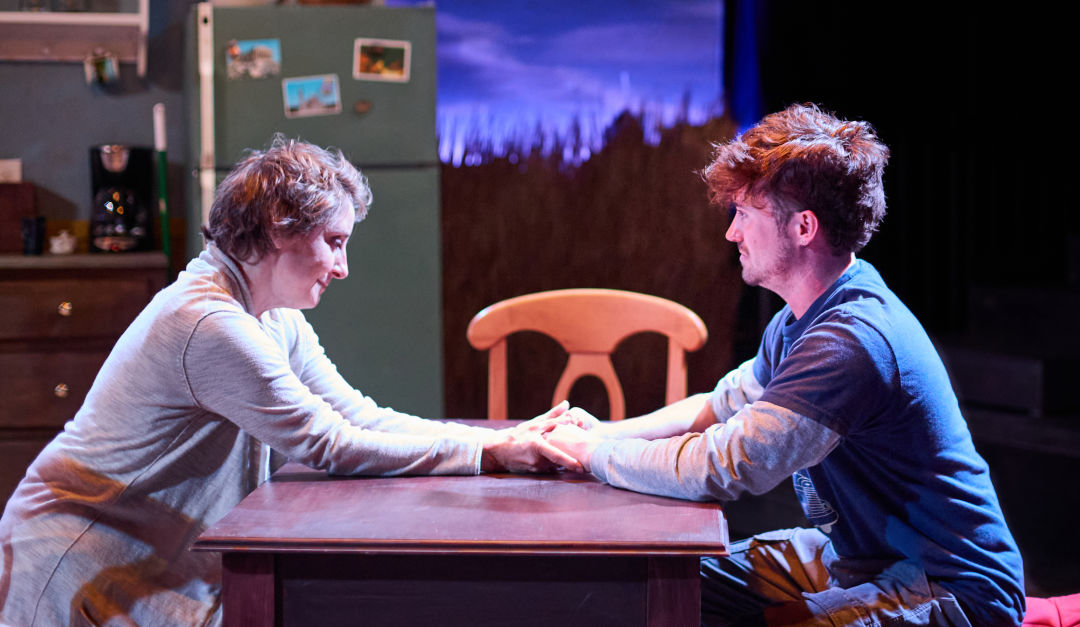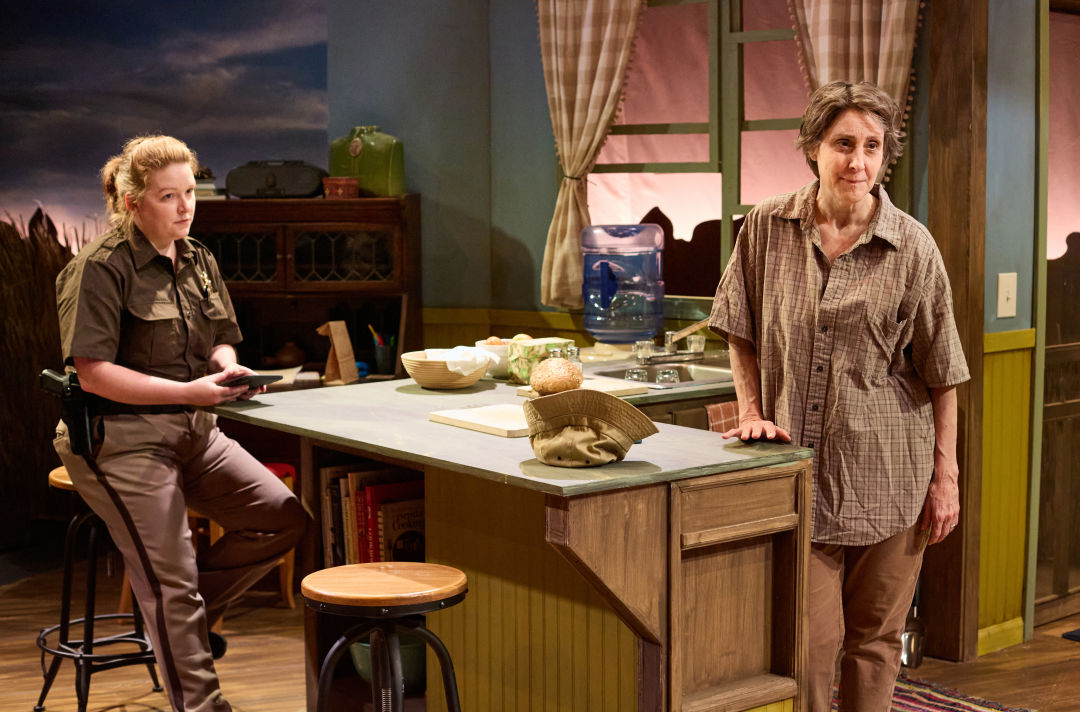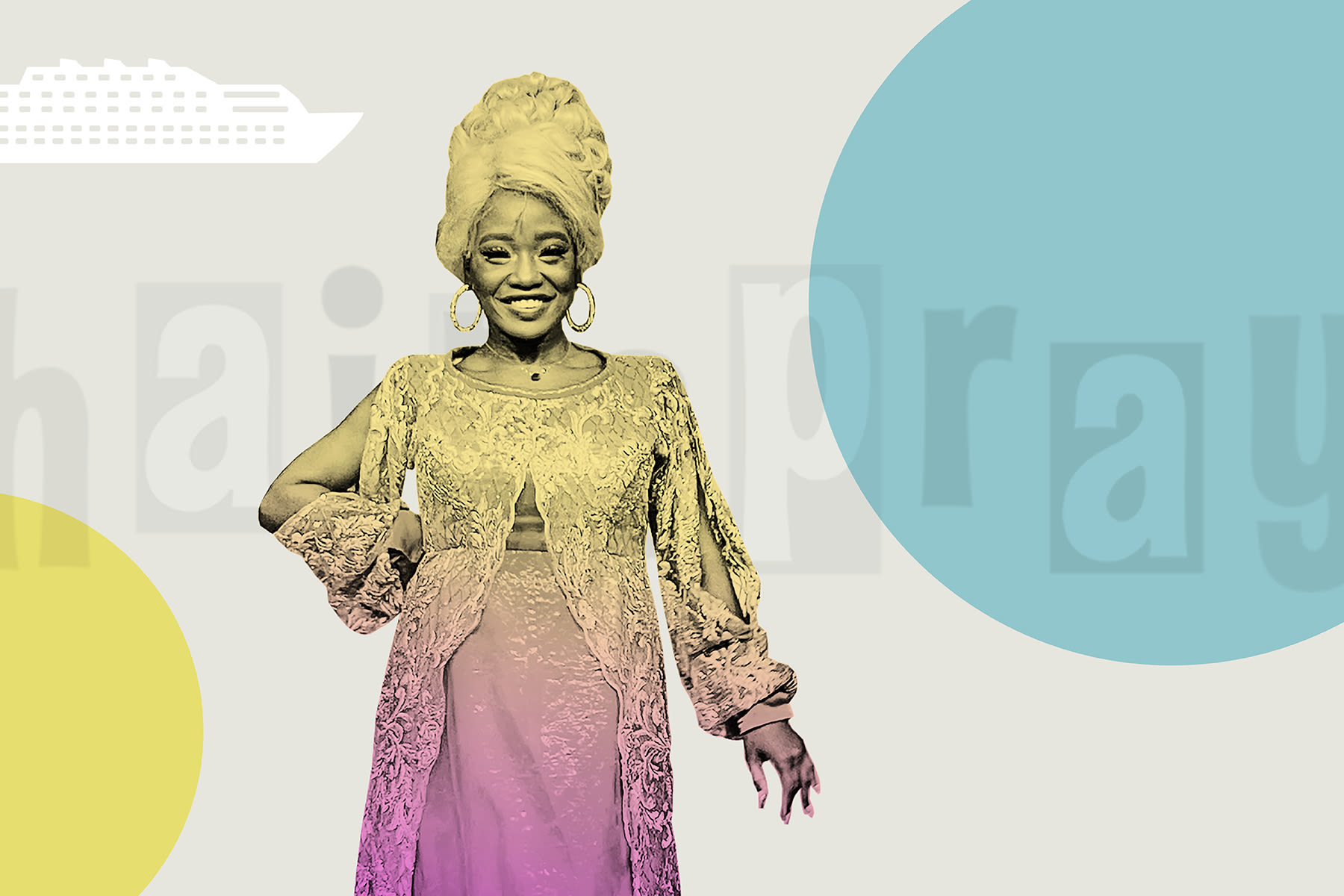4th Wall’s Swing State Asks Tough Questions Without Easy Answers

Houstonia’s The Must List tells you about something going on in Houston that you absolutely cannot miss.
Swing State lasts for approximately 90 minutes. Audience members will likely need to append an additional 10 to their viewing, to account for sitting in their car death-gripping and staring at the steering wheel while processing everything they just watched. For the opener to 4th Wall Theatre Company’s latest season, director Jennifer Dean went for a raw, timely reminder of what’s at stake when power goes unchecked. She shepherds Pulitzer Prize nominee Rebecca Gilman’s stark play to its regional premiere, with shows running from September 20 through October 5.
Scheduling Swing State during a contentious election cycle serves as a glimpse into how connectivity and isolation has marked our recent past. It’s a meditation on the tolls of loneliness, grief, and degrading mental health on four people living in rural Wisconsin, intentionally more mind-imploding than mind-blowing. Hanging over all their heads in an unspoken meta question: do we want to go back to this?
“The play definitely deals with some difficult issues. There’s conversations about self-harm and anxiety. There is a presence of guns,” Dean says. “[Gilman] has captured, I think, in a really profound way, this moment of time that we have all lived through, just post-pandemic.”
Peg, played with frazzled vulnerability by veteran Houston actress Pamela Vogel, centers the narrative. She’s still grieving the loss of her beloved biologist husband, Jim, and is struggling to save the prairie surrounding their home as it faces ecological collapse. Originally a Midwesterner herself, Vogel saw plentiful aspects of her cultural upbringing in the “very, very nice” Peg, a well-educated, softhearted environmentalist in a world constantly pushing the limits of her idealism.
“The flora and fauna, the bird life, the insect life that she knows used to be [on the prairie] is dying… Because she’s involved in it all, she’s a witness,” Vogel says. “It’s all a metaphor.”
One could hardly call Peg the most solid of emotional anchors, adrift as she is alongside actor Wesley Whitson’s character Ryan, her ex-con neighbor and surrogate son yearning for a second chance. When a pair of cops—played by a bitter, steely Christy Watkins and a wide-eyed, aw-shucksian Faith Fossett, both absorbing, provocative performers—show up, the pair’s bond decays into something more tense and fragile than before. Vogel shuffles and twitches around the stage as a bared circulatory system. We witness her nerves continue fraying in real time, and the devastating effect this has on a wrenchingly earnest Whitson, who vacillates between deadpan eyerolls and explosive anxiety.

“The play is about a family…a kind of cobbled together family. But no one, for any one moment, thinks that they’re not family. They’re family, and [that] doesn’t look the same way as it used to,” Vogel says. “So that’s what we have in here. We have the clashes of technology and human beings, which is a part of our everyday life.”
Yet despite their mental, occasionally physical, meanderings, all four sincerely wish to bring one another back down to earth. It’s just that sometimes, what they deem the best solution isn’t exactly the healthiest or most well-advised. Though based in Wisconsin, such a message certainly reverberates across state boundaries.
Politics only comes up sporadically during the play. A mention of a newspaper endorsing former President Donald Trump here, Watkins’s sheriff barking at insecure deputy Fossett to remove her COVID protections there. It’s present, though seeping in from the sides and looming overhead like a stealth, shadowy horror movie antagonist biding its time before striking. Such an approach to prescient material allows audiences to ask their own questions and ponder potential answers.
“How do you move forward? How do you find hope? How do you find closure? How do you find common ground with people [when] maybe you haven’t had that before?” Dean says. “I think it’s a really important piece. In spite of the name Swing State, it’s not a political play, although I think it hints at the sense of, How are we going to move forward together?”




